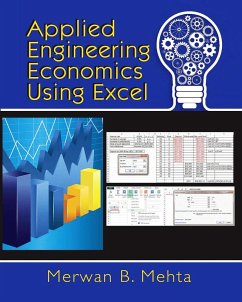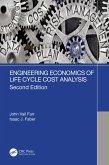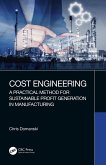This must-have textbook for students in mechanical, civil, and electrical engineering departments addresses issues not sufficiently covered by existing engineering economics texts. Clearly presenting fundamental concepts that engineering students need to master in one semester, the author effectively applies an incremental learning method, starting with resolving personal financial matters and gradually progressing to the complexities of engineering economic calculations. Ample practical examples and exercises with answers at the end of each chapter teach students to solve problems using Microsoft Excel without the need for calculus. Future engineers also will gain valuable skills such as the ability to effectively communicate the results of their analyses to financial professionals.
Dieser Download kann aus rechtlichen Gründen nur mit Rechnungsadresse in A, D ausgeliefert werden.









